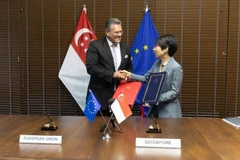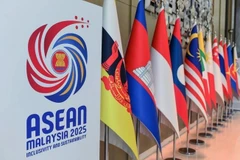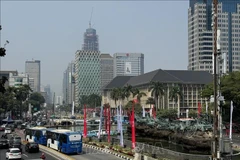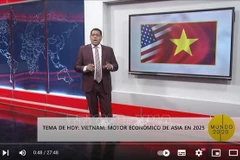Jakarta (VNA) - Several international organisations on April revised their economic growth forecasts for Indonesia, reflecting concerns over escalating global trade tensions and domestic fiscal challenges.
In its April World Economic Outlook, the International Monetary Fund (IMF) reduced its projection for Indonesia's real GDP growth in 2025 from 5.1% to 4.7%, maintaining this estimate for 2026. It also revised its inflation forecast down to 1.7% and projected the current account deficit to rise to -1.5% of GDP. This adjustment is attributed to global trade uncertainties, including potential US tariffs of up to 32% on key Indonesian exports such as electronics, textiles, and footwear.
In response to both domestic and global economic uncertainties, Bank Indonesia (BI) decided to keep its key interest rate unchanged at 5.75% during its April 23 meeting to support the weakening rupiah. However, BI also lowered its GDP growth forecast for 2025 to around 4.8%, a downward revision from previous projections. The bank further indicated it may cut interest rates by 25 basis points in the next quarter to help stimulate growth.
Earlier, in its March 2025 report, the Organisation for Economic Co-operation and Development (OECD) also reduced its global and regional growth forecasts, with Indonesia being impacted by the overall downturn. Other institutions, such as the World Bank (WB) and the Asian Development Bank (ADB), also adjusted Indonesia’s growth forecast to about 5% for 2025.
Despite these adjustments, Indonesia’s Minister of Finance Sri Mulyani Indrawati remains optimistic that the country can achieve a growth rate of 5% in 2025. The government has set a target growth rate of 5.2% and is actively negotiating with the US to avoid unfavourable tariffs while promoting the import of US goods and reducing non-tariff barriers.
President Prabowo Subianto has set an ambitious target of achieving 8% economic growth by 2029. To reach this goal, Indonesia has launched initiatives such as the Danantara national investment fund and the Free Nutritious Meals Program to boost domestic investment and consumption. However, experts caution that fiscal risks and policy instability could hinder the achievement of this goal./.



























